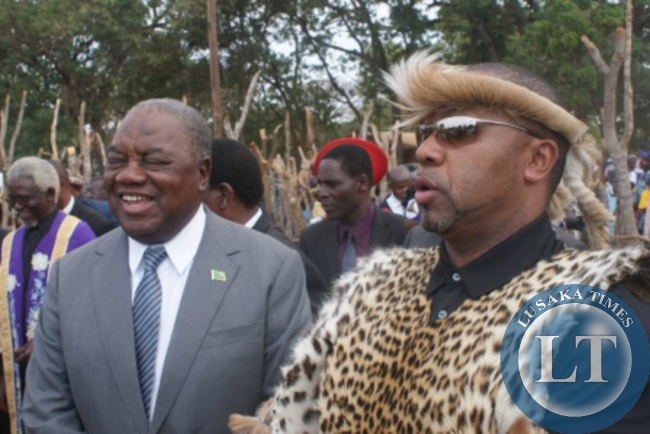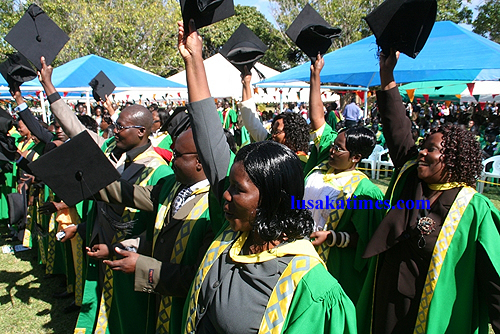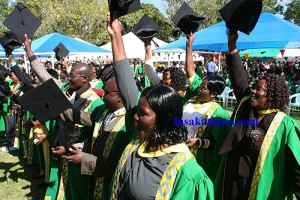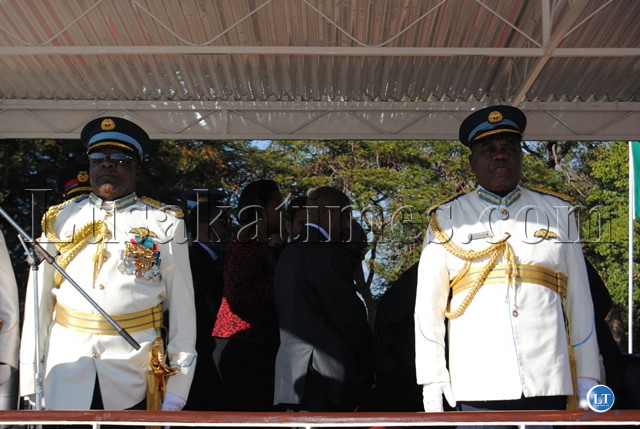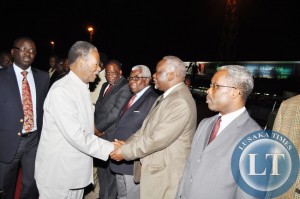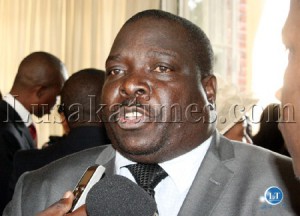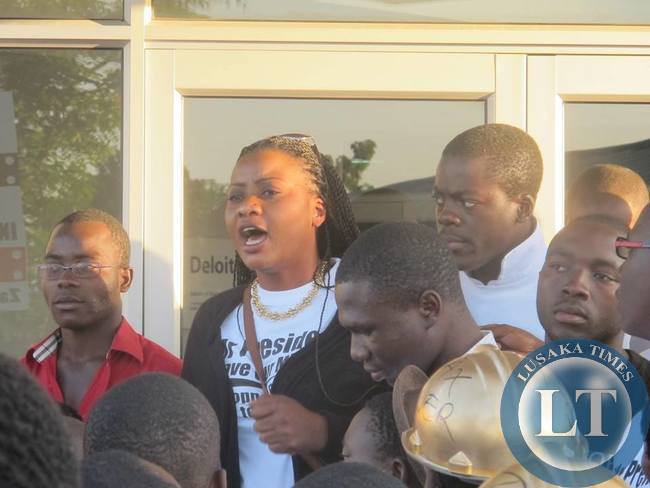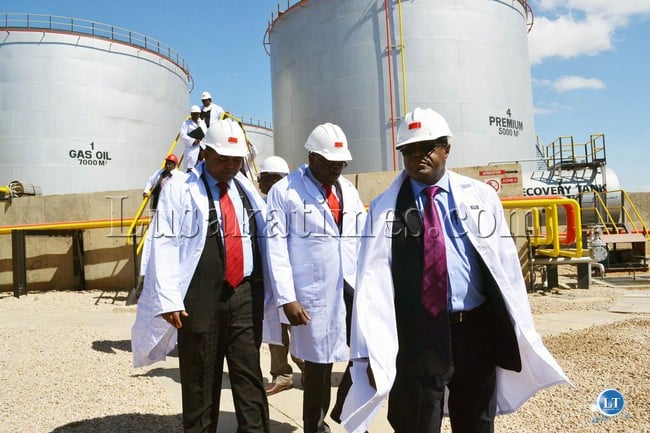
(right) and his Deputy George Zulu (centre) inspect the Lusaka fuel
storage depot with Lusaka Province Minister Obvious Mwaliteta before
commissioning of the plant
THE Government has objected to plans by Glencore-owned Sable Zinc Mine in Kabwe to retrench 170 employees following the placing of the company on care and maintenance due to the withholding of K64 million VAT refund by the Zambia Revenue Authority (ZRA).
Mines, Energy and Water Development Minister Christopher Yaluma said the Government was not going to accept the planned move by Sable Zinc to lay off the miners.
Mr Yaluma, who was commenting on the pending job losses at Sable Zinc, said as far as the Government was concerned, miners at the Glencore-owned company were guaranteed their employment.
“There is procedure to be followed when retrenching workers and as far as I am concerned, that procedure which requires a company to first of all inform the Ministry of Labour before down-sizing labour has not been followed by Sable Zinc,” Mr Yaluma said.
“So like I have highlighted and indicated, we are not going to accept any job-cuts at Sable Zinc because we don’t know why they want to do that.”
The minister called on Sable Zinc not to play games with the Government over matters of employment.
“We have guaranteed people employment and so not until they share with us why they want to retrench, nobody is going to be retrenched,” he said.
Mr Yaluma said Sable Zinc should be aware of the needed steps in labour circles that required employees to be notified way in advance before they could be retrenched in order for them to prepare for it.
“As it is, they can’t announce their intention to retrench workers just like that,” Mr Yaluma said.
When contacted, Labour and Social Security Minister Fackson Shamenda also expressed ignorance of the pending job-cuts at Sable Zinc.
“I have not been briefed yet and I have just been hearing about it, so I can’t make a comment for now,” Mr Shamenda said.
A letter signed by Sable Zinc general manager David Littleford obtained by the Times at the weekend revealed that the company was in the process of retrenching 158 unionised employees and 12 management staff next month to reduce costs of running the institution.
This is in view of the enforcement by ZRA of rule 18 on value-added tax (VAT).


